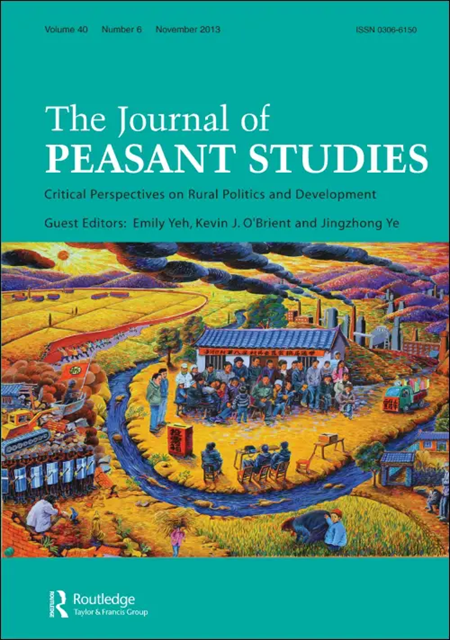国际贸易在粮食主权中的地位是什么?
IF 4.8
1区 社会学
Q1 ANTHROPOLOGY
引用次数: 163
摘要
国际农产品贸易对全球数百万农民的生计和大多数国家的粮食安全战略至关重要。然而,全球贸易政策正在加剧粮食不安全,破坏生计。粮食主权的出现在一定程度上是对世界贸易组织《农业协定》(AoA)的抵制和对国内农业政策强加多边贸易纪律的表达。虽然没有明确反对贸易,但粮食主权运动被认为是对当地市场的强烈偏好。中国对现有的国际贸易结构提出了挑战,总体而言,中国在贸易问题上的官方立场仍然模棱两可。我们认为,贸易对于实现小规模生产者的生计仍然很重要,包括积极参与粮食主权运动的农民。这也关系到粮食安全。这场运动仍未充分探索这一问题,可能会使数百万小农生产者被边缘化,也可能会忽视按照更多粮食主权路线塑造贸易规则的机会。作者认为,进一步发展该运动在贸易方面的立场具有重要的战略意义。本文章由计算机程序翻译,如有差异,请以英文原文为准。
What place for international trade in food sovereignty?
International agricultural commodity trade is central to the livelihoods of millions of farmers across the globe, and to most countries' food security strategies. Yet global trade policies are contributing to food insecurity and are undermining livelihoods. Food Sovereignty emerged in part as the articulation of resistance to the World Trade Organization's Agreement on Agriculture (AoA) and the imposition of multilateral trade disciplines on domestic agriculture policy. While not explicitly rejecting trade, the food sovereignty movement is identified with a strong preference for local markets. It challenges existing international trade structures, and on the whole its official position on trade remains ambiguous. We argue that trade remains important to the realization of the livelihoods of small-scale producers, including peasants active in the Food Sovereignty movement. It also matters for food security. That it remains underexplored by the movement risks marginalizing millions of smallholder producers, and risks overlooking opportunities to shape trade rules along more food sovereign lines. The authors suggest further development of the movement's position on trade is strategically important.
求助全文
通过发布文献求助,成功后即可免费获取论文全文。
去求助
来源期刊

Journal of Peasant Studies
Multiple-
CiteScore
10.50
自引率
17.60%
发文量
99
期刊介绍:
A leading journal in the field of rural politics and development, The Journal of Peasant Studies (JPS) provokes and promotes critical thinking about social structures, institutions, actors and processes of change in and in relation to the rural world. It fosters inquiry into how agrarian power relations between classes and other social groups are created, understood, contested and transformed. JPS pays special attention to questions of ‘agency’ of marginalized groups in agrarian societies, particularly their autonomy and capacity to interpret – and change – their conditions.
 求助内容:
求助内容: 应助结果提醒方式:
应助结果提醒方式:


